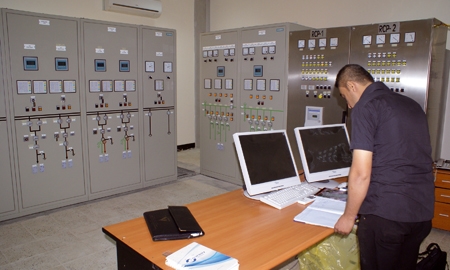Over the past decade, Kurdistan has undergone a major transformation, with double-digit economic growth propelling a rapid rise in the region’s living standards.
At the heart of this development has been Kurdistan’s ability to ensure that the provision of electric power has kept pace with the booming economy – helping businesses to expand and keeping up with household’s growing demands.
During this time, Kurdistan has transformed its ability to generate and distribute electricity, turning it from being a region reliant on imported power, to one on the brink of exporting its own supplies.
Back in 2003, this was a region in transition, following the invasion of Iraq. Unable to provide its citizens and businesses with a consistent electricity supply, Kurdistan had to turn to neighboring countries to provide much of the limited amount of power that did come into the region.
However, as security improved, the economy grew and a higher standard of living emerged – resulting in ever-increasing energy demands that required a coherent plan of action if sustainable growth was to continue.
“From the beginning of 2011, we have not received any power from abroad; it is all locally generated.“
Yasin Sheikh Abu Bakir Muhammad Mawati,
Minister of Electricity |
“After 2003, there was big demand from different sectors, including electricity,” explains Minister of Electricity, Yasin Sheikh Abu Bakir Muhammad Mawati. “All sectors began to grow, starting with industry and housing.”
With the economy expanding by between 10-12% each year, the region invested in its energy infrastructure. Nine years ago, the Ministry of Electricity was able to provide just 200MW to its citizens. By 2006, Kurdistan was still receiving around 150MW from Turkey and 200MW from the Iraqi national grid. Just five years later, however, the region had ratcheted up its power-producing capabilities to a level that meant they no longer required foreign supplies.
“From the beginning of 2011, we have not received any power from abroad; it is all locally generated,” says Mr. Mawati.
“In Duhok, we have 100% coverage, even in the villages because they are accessible. For Erbil and for Sulaymaniyah, which have big populations and a big geographic area, we have achieved 90%-93% accessibility for all villages,” he adds.
A key aspect of Kurdistan’s electricity success story has been the inclusion of the private sector. Companies have been invited to tender for projects, helping to ensure power production kept pace with the region’s economic growth.
“Exclusive of Iraq, we have decided to involve the private sector in the generation of power,” explains the Minister. “We have achieved that goal and solved the problem of electricity in our region. The Iraqi government did not involve the private sector and they are still suffering from a shortage of electricity in the region.”
With Kurdistan’s economy continuing to experience surging growth, the Ministry of Electricity has faced an ongoing challenge to meet energy demands. Consistent investment in plants at Duhok, Erbil and Sulaymaniyah has pushed capacity towards 4,500MW, while three hydroelectric plants are also due to be built. In addition, there are 300 power projects designed to improve the region’s electricity generation capabilities.
On top of this, the Ministry has ambitions to increase its power production capacity to a level that would enable it to export electricity, a pivotal development for a region that until 2003 relied on imported power.
“According to our plans, in the next three years we can meet all the demand within the region and also to export power to Iraq and to Turkey,” explains Mr. Mawati. “Our plan is to establish a 400 kilovolt [KV] network to exchange power between the region, Iraq and Turkey, through a new transmission grid.
“The demand for the investment projects of the region is 1,530 MW. That is what is needed on top of the 2,600 MW we already provide. This is far more than our growth, which we mentioned is 15%.,” he says.
With electricity production set to meet and even exceed predicted demand, Kurdistan is now focusing its energies on how to efficiently recoup some of the costs. Plans to privatize the distribution element of the industry are in place, while the region is inviting firms to provide cost-effective solutions to distribution and revenue collection.
Following the example set by the region’s approach to measuring households’ water usage, the Ministry of Electricity plans to use SmartMeters to calculate billing rates for electricity.
“It is the same software; the same networking will be used for electricity and for water, measuring domestic consumer use,” says Mr. Mawati. “We hope that before the end of this year, we will sign a contract with a company for collecting all the electricity revenues for about one million consumers in the region.”
For a region which relied on imported electricity supplies little more than a decade ago, this latest development would be a remarkable achievement. But it doesn’t look like that will be the last benchmark to be passed by Kurdistan. The region’s ambitious plans to transform its electricity generation infrastructure are likely to continue exceeding all expectations.

0 COMMENTS